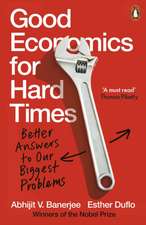A Place for Everything
Autor Judith Flandersen Limba Engleză Paperback – 3 mai 2022
'Delightfully quirky and compelling' The Times
One we've learned it as children few of us think much of the alphabet and its familiar sing-song order. And yet the order if the alphabet, that simple knowledge that we take for granted, plays a major role in our adult lives. From the school register to the telephone book, from dictionaries and encyclopaedias to library shelves, our lives are ordered from A to Z. Long before Google searches, this magical system of organisation gave us the ability to sift through centuries of thought, knowledge and literature, allowing us to sort, to file, and to find the information we have, and to locate the information we need.
Acclaimed historian Judith Flanders draws our attention to both the neglected ubiquity of the alphabet and the long, complex history of its rise to prominence. For, while the order of the alphabet itself became fixed very soon after letters were first invented, their ability to sort and store and organize proved far less obvious. To many of our forebears, the idea of of organising things by the random chance of the alphabet rather than by established systems of hierarchy or typology lay somewhere between unthinkable and disrespectful.
In A Place for Everything, Judith Flanders fascinatingly lays out the gradual triumph of alphabetical order, from its possible earliest days as a sorting tool in the Great Library of Alexandria in the third century BCE, to its current decline in prominence in our digital age of Wikipedia and Google. Along the way, the reader is enlightened and entertained with a wonderful cast of unknown facts, characters and stories from the great collector Robert Cotton, who denominated his manuscripts with the names of the busts of the Roman emperors surmounting his book cases, to the unassuming sixteenth-century London bookseller who ushered in a revolution by listing his authors by 'sirname' first.
| Toate formatele și edițiile | Preț | Express |
|---|---|---|
| Paperback (2) | 56.32 lei 3-5 săpt. | +37.44 lei 6-12 zile |
| Pan Macmillan – 3 feb 2021 | 56.32 lei 3-5 săpt. | +37.44 lei 6-12 zile |
| BASIC BOOKS – 3 mai 2022 | 99.79 lei 3-5 săpt. | |
| Hardback (2) | 76.46 lei 3-5 săpt. | +53.65 lei 6-12 zile |
| Pan Macmillan – 6 feb 2020 | 76.46 lei 3-5 săpt. | +53.65 lei 6-12 zile |
| BASIC BOOKS – 20 oct 2020 | 152.45 lei 3-5 săpt. | +25.92 lei 6-12 zile |
Preț: 99.79 lei
Nou
19.10€ • 20.08$ • 15.78£
Carte disponibilă
Livrare economică 27 martie-10 aprilie
Specificații
ISBN-10: 1541601165
Pagini: 368
Dimensiuni: 137 x 206 x 28 mm
Greutate: 0.32 kg
Editura: BASIC BOOKS
Notă biografică
Descriere
'Marvellous...I read it with astonished delight..It is equally scholarly and entertaining.' Jan Morris
'Delightfully quirky and compelling' The Times
One we've learned it as children few of us think much of the alphabet and its familiar sing-song order. And yet the order if the alphabet, that simple knowledge that we take for granted, plays a major role in our adult lives. From the school register to the telephone book, from dictionaries and encyclopaedias to library shelves, our lives are ordered from A to Z. Long before Google searches, this magical system of organisation gave us the ability to sift through centuries of thought, knowledge and literature, allowing us to sort, to file, and to find the information we have, and to locate the information we need.
In A PLACE FOR EVERYTHING, acclaimed historian Judith Flanders draws our attention to both the neglected ubiquity of the alphabet and the long, complex history of its rise to prominence. For, while the order of the alphabet itself became fixed very soon after letters were first invented, their ability to sort and store and organize proved far less obvious. To many of our forebears, the idea of of organising things by the random chance of the alphabet rather than by established systems of hierarchy or typology lay somewhere between unthinkable and disrespectful.
A PLACE FOR EVERYTHING fascinatingly lays out the gradual triumph of alphabetical order, from its possible earliest days as a sorting tool in the Great Library of Alexandria in the third century BCE, to its current decline in prominence in our digital age of Wikipedia and Google. Along the way, the reader is enlightened and entertained with a wonderful cast of unknown facts, characters and stories from the great collector Robert Cotton, who denominated his manuscripts with the names of the busts of the Roman emperors surmounting his book cases, to the unassuming sixteenth- century London bookseller who ushered in a revolution by listing his authors by 'sirname' first.

















